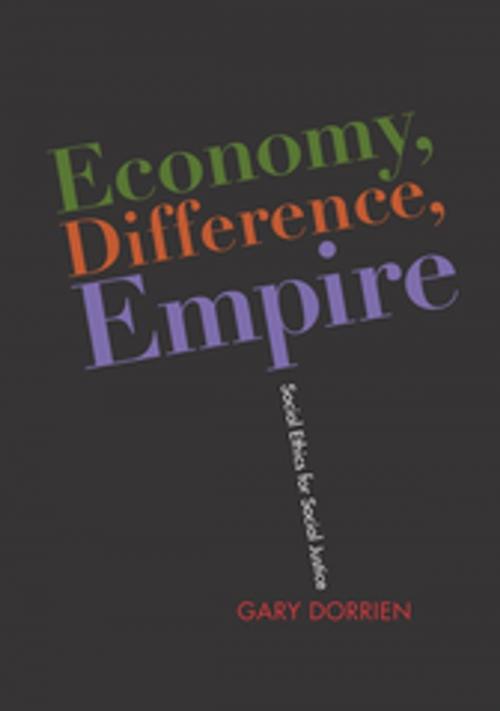Economy, Difference, Empire
Social Ethics for Social Justice
Nonfiction, Religion & Spirituality, Philosophy, Ethics & Moral Philosophy| Author: | Gary Dorrien | ISBN: | 9780231526296 |
| Publisher: | Columbia University Press | Publication: | November 2, 2010 |
| Imprint: | Columbia University Press | Language: | English |
| Author: | Gary Dorrien |
| ISBN: | 9780231526296 |
| Publisher: | Columbia University Press |
| Publication: | November 2, 2010 |
| Imprint: | Columbia University Press |
| Language: | English |
Sourcing the major traditions of progressive Christian social ethics-social gospel liberalism, Niebuhrian realism, and liberation theology-Gary Dorrien argues for the social-ethical necessity of social justice politics. In carefully reasoned essays, he focuses on three subjects: the ethics and politics of economic justice, racial and gender justice, and antimilitarism, making a constructive case for economic democracy, along with a liberationist understanding of racial and gender justice and an anti-imperial form of liberal internationalism.
In Dorrien's view, the three major discourse traditions of progressive Christian social ethics share a fundamental commitment to transform the structures of society in the direction of social justice. His reflections on these topics feature innovative analyses of major figures, such as Walter Rauschenbusch, Reinhold Niebuhr, James Burnham, Norman Thomas, and Michael Harrington, and an extensive engagement with contemporary intellectuals, such as Rosemary R. Ruether, Katie Cannon, Gregory Baum, and Cornel West. Dorrien also weaves his personal experiences into his narrative, especially his involvement in social justice movements. He includes a special chapter on the 2008 presidential campaign and the historic candidacy of Barack Obama.
Sourcing the major traditions of progressive Christian social ethics-social gospel liberalism, Niebuhrian realism, and liberation theology-Gary Dorrien argues for the social-ethical necessity of social justice politics. In carefully reasoned essays, he focuses on three subjects: the ethics and politics of economic justice, racial and gender justice, and antimilitarism, making a constructive case for economic democracy, along with a liberationist understanding of racial and gender justice and an anti-imperial form of liberal internationalism.
In Dorrien's view, the three major discourse traditions of progressive Christian social ethics share a fundamental commitment to transform the structures of society in the direction of social justice. His reflections on these topics feature innovative analyses of major figures, such as Walter Rauschenbusch, Reinhold Niebuhr, James Burnham, Norman Thomas, and Michael Harrington, and an extensive engagement with contemporary intellectuals, such as Rosemary R. Ruether, Katie Cannon, Gregory Baum, and Cornel West. Dorrien also weaves his personal experiences into his narrative, especially his involvement in social justice movements. He includes a special chapter on the 2008 presidential campaign and the historic candidacy of Barack Obama.















